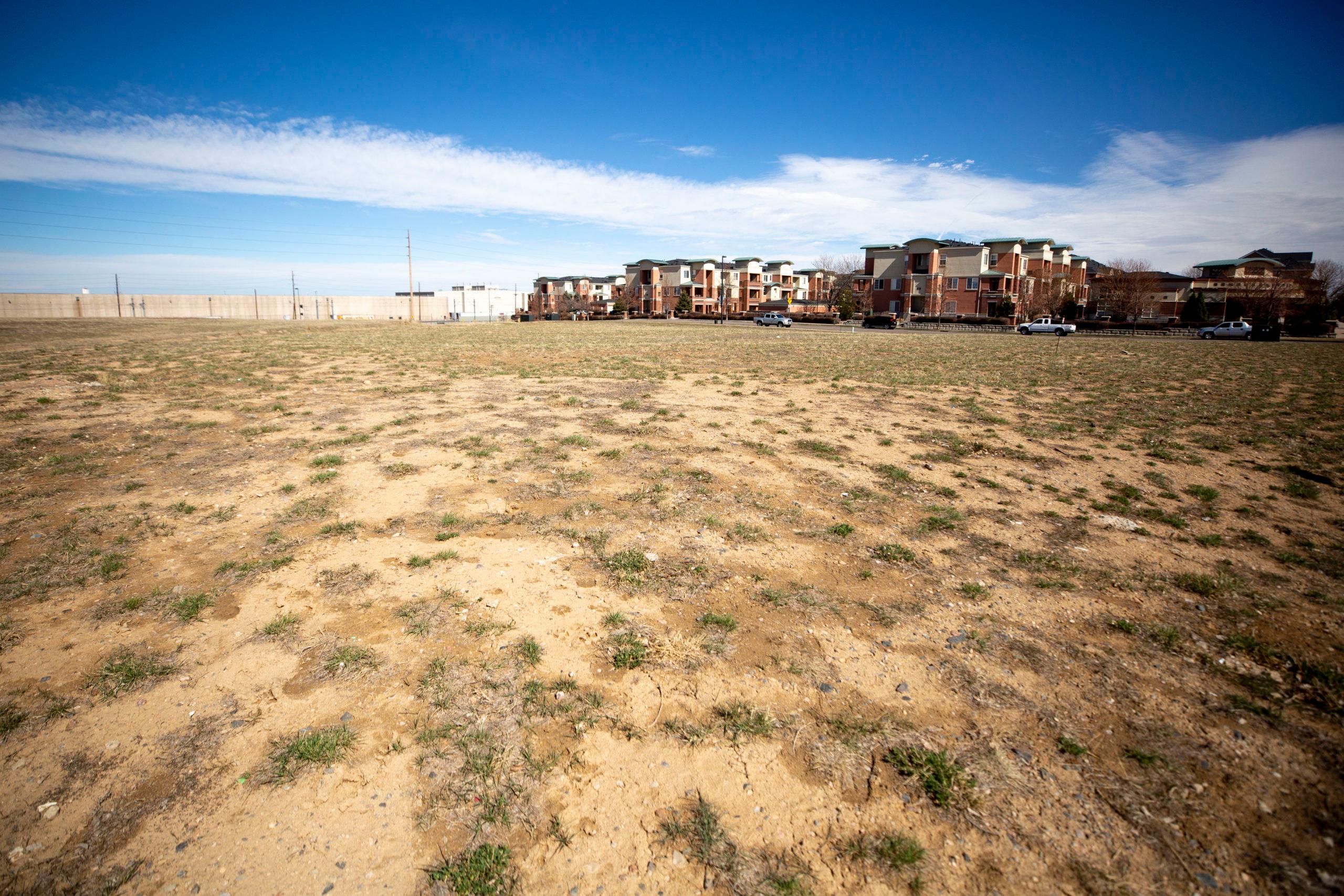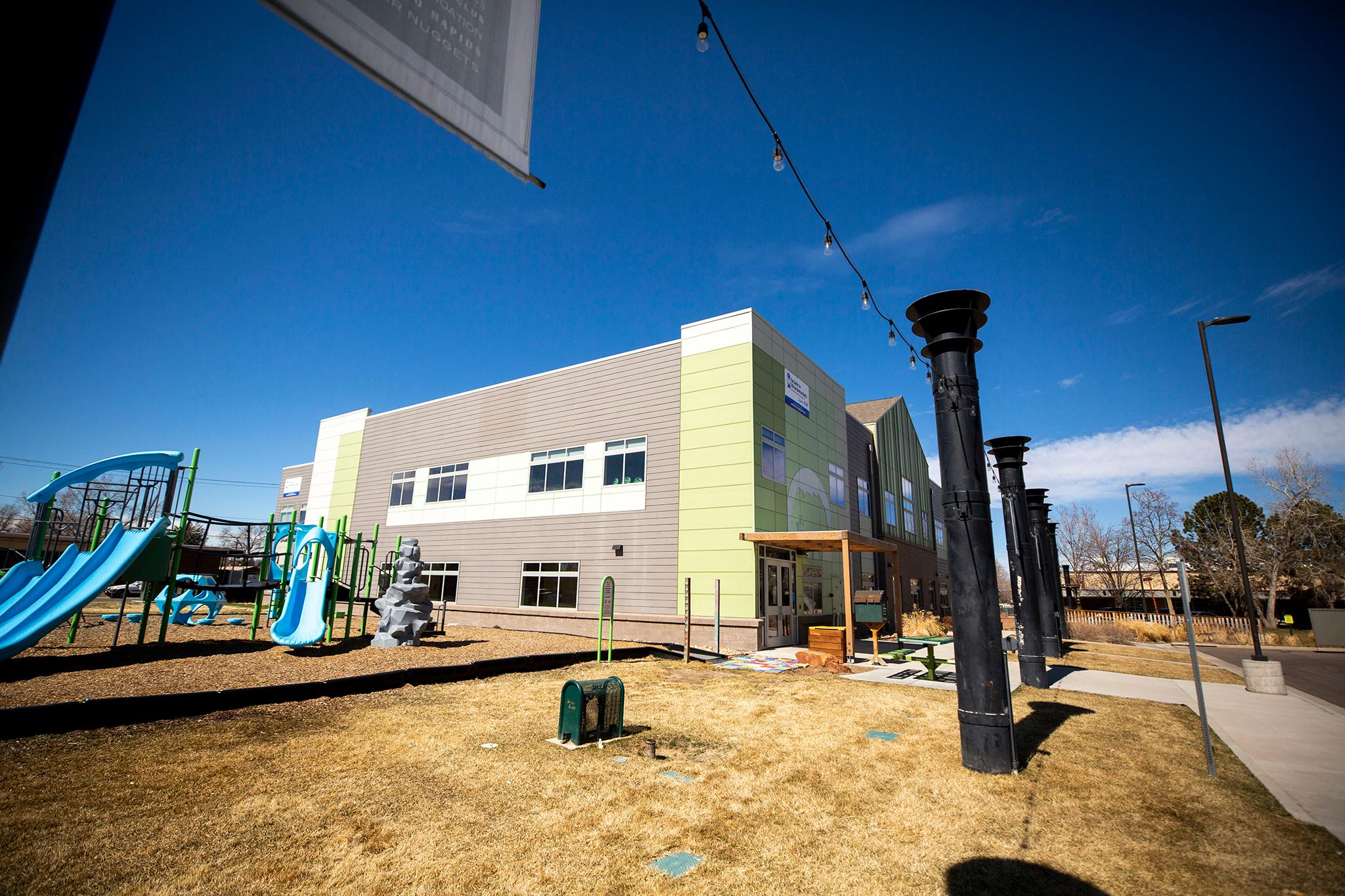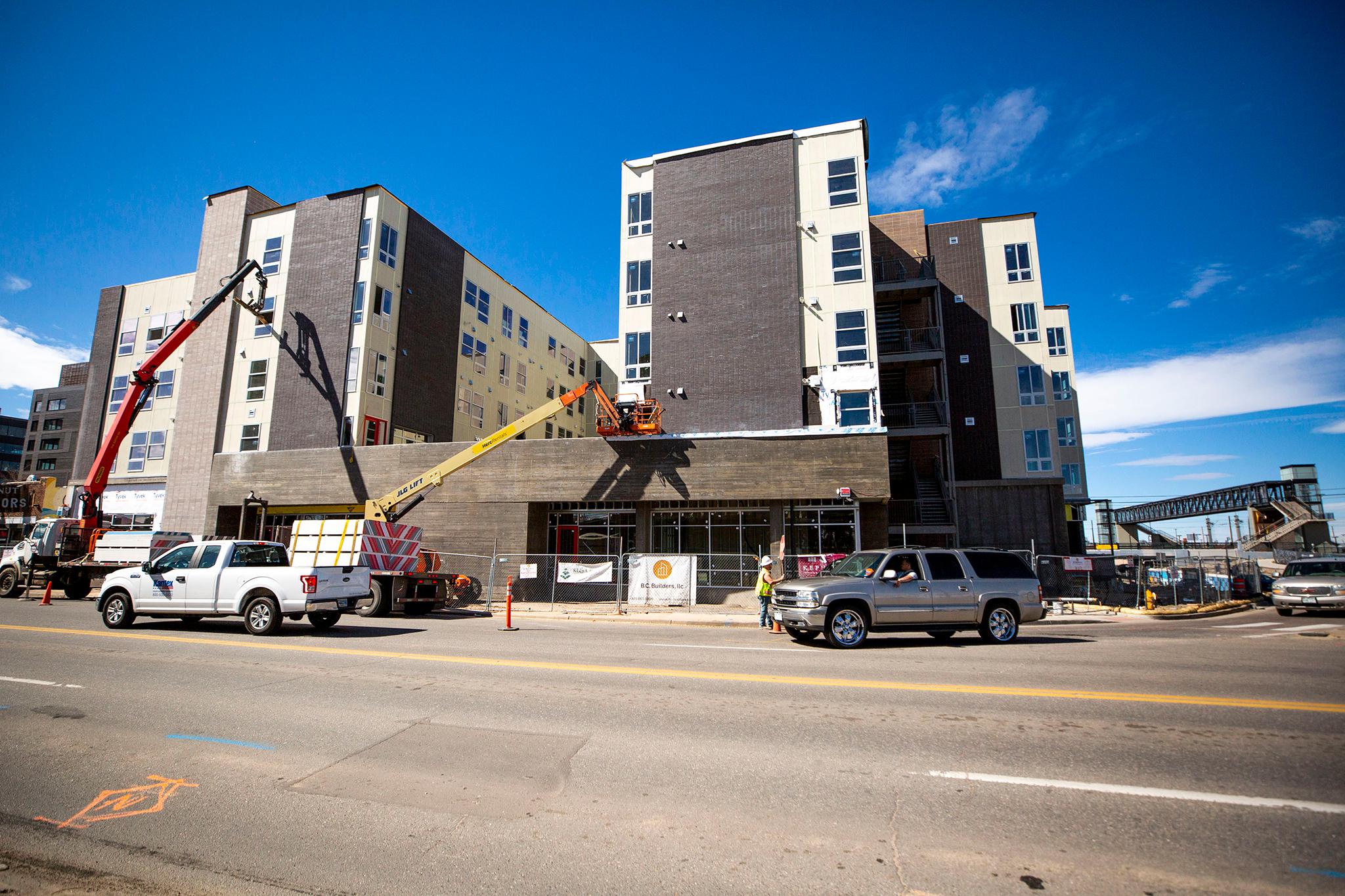Update: Denver City Council approved the $2 million for GES Coalition and the $3 million for Elevation in the summer of 2020. The $485,000 for Habitat for Humanity did not require council approval because it was less than $500,000.
The visitor from Houston had a question.
"What made you comfortable doing this?" Jason Hyman asked Stu Wright, a FirstBank executive who had just described his institution's $25 million investment in a revolving loan program that the Urban Land Conservancy, a 17-year-old Denver real estate nonprofit, uses to develop affordable housing and other projects.
Wright responded that he had faith in the Urban Land Conservancy.
"They have a pretty significant balance sheet," he said.
Wright offered to share his contact details in case officials in other cities wanted to hear more about the "Metro Denver Impact Facility." Since 2018, the Urban Land Conservancy has tapped the facility to acquire seven properties, including an 18,000-square-foot site at 801 West Sixth Avenue where a private developer and the Elevation Community Land Trust will create a mix of commercial space and 92 condominiums that will be sold below market rates.

Hyman was among two dozen visitors in Denver this week to study affordable housing strategies. The visitors from Portland, Ore., Atlanta and Houston focused on organizations such as the Urban Land Conservancy and Elevation that use trusts as a weapon to fight displacement by allowing low- and moderate-income families to buy homes.
The Urban Land Conservancy acquires land and then makes it available on low-cost 99-year leases that are automatically renewed for another 99 years, allowing developers to pass savings on to businesses or households. Homeowners buy their own houses in community land trusts, saving on land costs because the land on which the properties sit is held communally.
Hyman and the other visitors were in town as Denver officials were working out the details on contracts for promised funding for Elevation, which was incubated by the Urban Land Conservancy, and for another community land trust formed by residents of Globeville and Elyria-Swansea.
Mayor Michael Hancock had announced last May that the city would give $3 million to Elevation to help build 60 homes and $2 million for the purchase of nine homes for the Globeville-Elyria-Swansea community land trust. Hancock's announcement also included $485,000 to help Habitat for Humanity acquire and refurbish 10 homes to sell at below-market rates with deed restrictions to last 90 years that will require owners who want to sell to keep prices below-market.
Executing all three of the contracts has proven tricky.
"We weren't working on a template for this one," Britta Fisher, who heads the city's housing department, said in an interview.
She said the work put into the contracts would mean the next "innovative investments" would be easier.
"We think that all these models hold long-term promise," Fisher said.

Elevation CEO Stefka Fanchi said she had hoped the funds would come more quickly, saying that real estate costs have only continued to rise since last May. But she said she understood the city's caution, noting that problems surfaced in 2018 with a municipal affordable housing program in which homes should have been sold only to people earning below the area's average median income and who meet other requirements.
City officials "have really been working to get it right this time," Fanchi said.
She said she hoped the contract would be finalized by late spring. City Council would then have to approve it.
Nola Miguel, director of the Globeville, Elyria-Swansea Coalition, said her group was reviewing a contract that came Friday. It could be April or May before the money would be available, she said.
"I understand the city hasn't done this before, and I appreciate that they are willing to go through this with us," Miguel said. But "the priorities still need to be prioritized. And when you're talking about displacement, that's important."
Last year Miguel's group, which was formed in 2017, secured $2 million in funding for its trust from the state department of transportation, which had sought community projects to mitigate the displacement and disruption it's causing in Globeville and Elyria-Swansea with its Interstate 70 expansion and renovation project.
Hyman, the visitor from Houston, said a highway widening project in his city was causing displacement.
"We're navigating," he said. "It's a lot to navigate."
He said his main interests in Denver were learning about financing mechanisms and about community engagement. His group's schedule included meetings with Elevation's Fanchi and with Globeville and Elyria-Swansea residents.
Miguel in turn hoped to learn from the visitors, particularly those from Houston, which has a community land trust that its city officials helped found in 2018.
Fanchi noted that the Houston Community Land Trust was about the same age as her Elevation, and similarly ambitious. Houston wants to have 1,100 homes in a land trust for the city by 2024. Elevation has set out to acquire or develop 700 permanently affordable homes in its first five years, though Elevation is working across Colorado, not just in one city.
Rudy Reyes of the city of Houston's community development department was among the group of visitors to Denver. He said his city was grappling with a problem familiar to Denverites: housing prices rising faster than earnings.
"It's concerning to me that a regular-sized house, not even an elaborate house, is $300,000. I can't even afford it," Reyes said.

Houston city officials brought in Grounded Solutions Network, a national nonprofit organization, to help draft its community land trust plan. Residents of Globeville and Elyria-Swansea also had turned to Grounded Solutions as they planned their trust.
"Ground Solutions pretty much opened the door to this whole massive amount of resources and people," Miguel said.
Grounded Solutions Network worked with another national real estate nonprofit, the Center for Community Progress, and the Wells Fargo Foundation to provide technical assistance, training and other support to Houston, Atlanta and Portland in a 36-month project that included the visit to Denver.
"Denver has created a model for investment in historically under-served communities of color in ways that respond directly to community desires," Grounded Solutions CEO Tony Pickett said in a statement.













